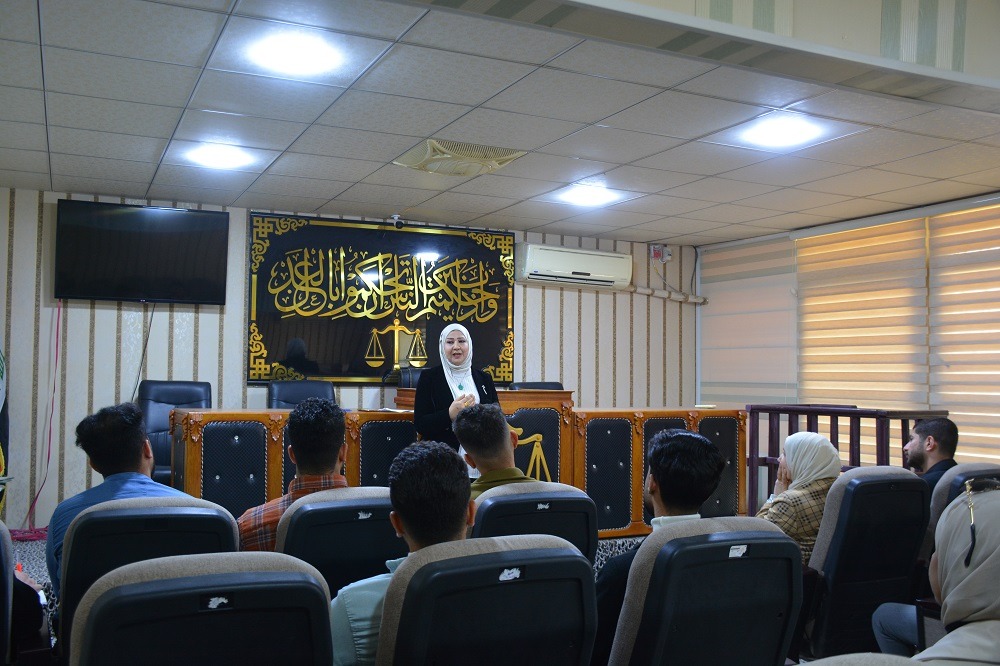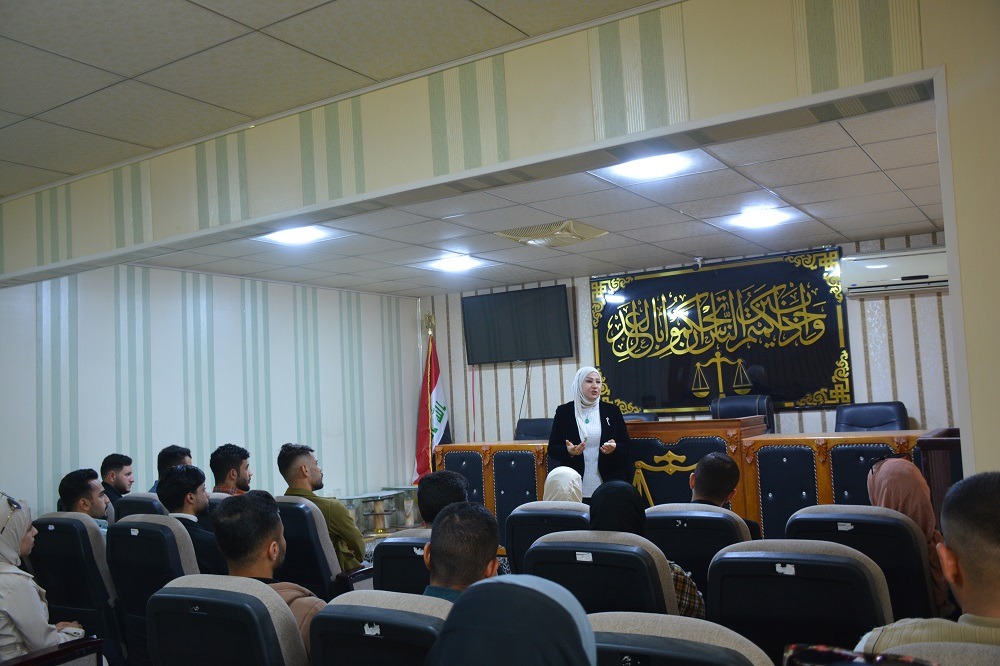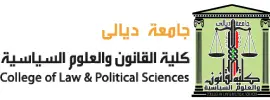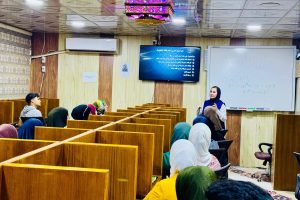Faculty of Law and Political Science conducts a course discussing the academic tension and its impact on university students’ performance

Sponsored by the President of Diyala University, Dr. Tahsin Hussein Mubarak, and under the supervision of Mr. Dean of the Faculty of Law and Political Science, Dr. Abdul Razaq Talal Jassim Al-Sarra, the Law Department, in cooperation with the Division of Continuing Education, held a Training course which dealt with “Academic tension and its impact on university students’ performance in English lessons”. The lectures which was presented by Dr. Nada Mohammed Hindi aimed to familiarize itself with the problems involved University students studying English as a foreign language face difficulties and challenges that may lead to tension and anxiety as a result of the inability to manage these difficulties and therefore may negatively affect students’ performance of their English-language tasks. The lecture also referred to the positive tension that enhances individuals’ motivation to persevere and succeed, but if it affects academic performance as well as the health and psychological problems associated with stress.
The course covered several themes, most notably the introduction of the concept of academic tension and its relationship to English learning and how to deal with academic pressure..
The course covered several themes, most notably the introduction of the concept of academic tension and its relationship to English learning and how to deal with academic pressure.
The session came up with a set of recommendations, most notably : Confronting and managing stresses through cognitive and behavioural strategies (cognitive and behavioural) is called ( coping mechanism) and asking for help from a more knowledgeable person to complete the study assignments.
In addition to controlling academic pressures, it is a cooperative responsibility between individuals, cadres, and the family through which the burden can be overcome, the motivation to accomplish academic tasks strengthened, and the strategy of self-regulation, time management, and preparation for study assignments and tests is followed and not postponed to avoid a cognitive burden.




